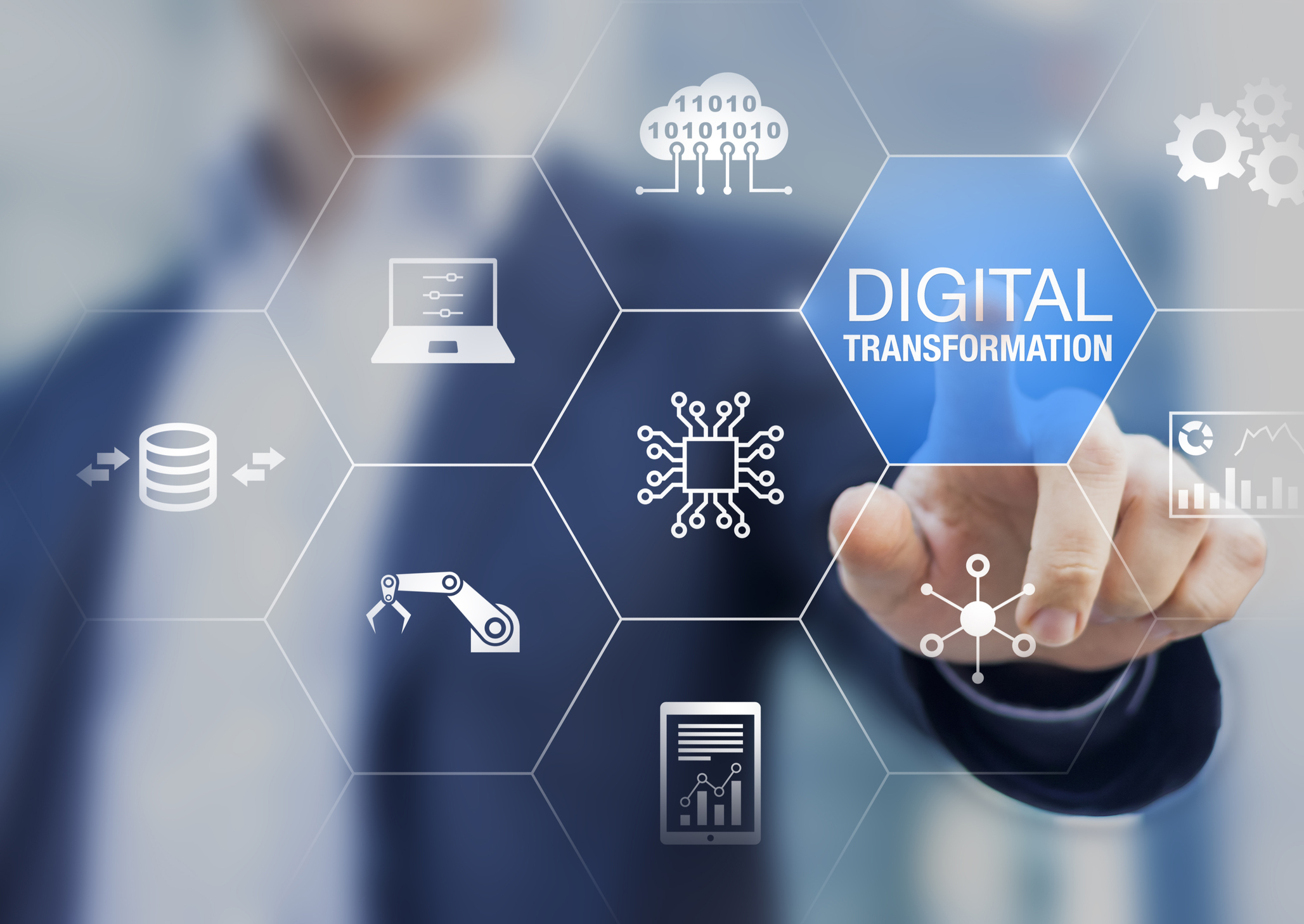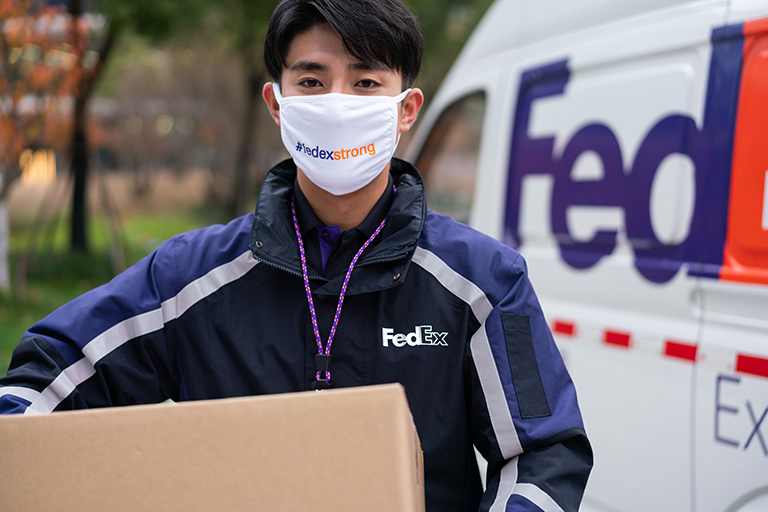4 Ways SMEs Can Navigate The New Normal Post COVID-19
The global pandemic continues to shape global economies and local business growth. We share tips for ongoing recovery for your small business.
Despite the COVID-19 pandemic continuing to impact the global economy, businesses, especially small and medium enterprises (SMEs), have wasted no time getting into recovery mode.
Though economies continue to rebound, vulnerable smaller businesses still face unprecedented challenges, from supply chain uncertainties and changing customer expectations to safeguarding the health and safety of their employees and customers. However, SMEs can be agile and flexible. This can give them the edge over larger companies during times of change – meaning they adapt quickly to emerging solutions and opportunities.
Still working through COVID recovery? Time to consider our four takeaways to help get your business back on track.
1. Accelerate digital transformation
Though economies continue to rebound, vulnerable smaller businesses still face unprecedented challenges, from supply chain uncertainties and changing customer expectations to safeguarding the health and safety of their employees and customers. However, SMEs can be agile and flexible. This can give them the edge over larger companies during times of change – meaning they adapt quickly to emerging solutions and opportunities.
Still working through COVID recovery? Time to consider our four takeaways to help get your business back on track.
1. Accelerate digital transformation

Global consumer behavior has shifted – we’ve seen an unprecedented surge in online transactions over the past year. According to Forrester, online retail sales in Asia Pacific will reach US$2.5 trillion in 2024. This E-commerce acceleration will continue.
Despite uncertainties ahead, the stay-at-home economy continues to show signs of growth, opening the door to new possibilities for startups.
Accelerating digital transformation allows small businesses to upgrade their businesses, tapping into online commerce and global markets. Overall, SMEs can increase business agility. It’s a huge opportunity to turn a pandemic situation in their favor and expand customer base cost-effectively.
At FedEx, we are working hard to support our SME customers throughout their recovery. Our automated shipping solutions and digital tools are designed to provide customers with maximum convenience, allowing them to focus on business continuity and expansion plans.
For instance, FedEx Electronic Trade Documents (ETD) is a digital solution that allows customers to prepare and submit customs paperwork online, not only saving time and paper, but ensuring a smooth customs clearance. And FedEx Delivery Manager allows e-tailers to offer their customers greater control on how shipments are delivered – at no additional cost.
2. Better employee engagement amid a health crisis
Despite uncertainties ahead, the stay-at-home economy continues to show signs of growth, opening the door to new possibilities for startups.
Accelerating digital transformation allows small businesses to upgrade their businesses, tapping into online commerce and global markets. Overall, SMEs can increase business agility. It’s a huge opportunity to turn a pandemic situation in their favor and expand customer base cost-effectively.
At FedEx, we are working hard to support our SME customers throughout their recovery. Our automated shipping solutions and digital tools are designed to provide customers with maximum convenience, allowing them to focus on business continuity and expansion plans.
For instance, FedEx Electronic Trade Documents (ETD) is a digital solution that allows customers to prepare and submit customs paperwork online, not only saving time and paper, but ensuring a smooth customs clearance. And FedEx Delivery Manager allows e-tailers to offer their customers greater control on how shipments are delivered – at no additional cost.
2. Better employee engagement amid a health crisis

Maintaining strong company values and an engaged workforce has never been more important. Policies like work-from-home in response to employees’ health and well-being have become a top priority for business leaders in their bid to achieve high employee engagement, satisfaction and effective performance. A COVID-19 survey in Hong Kong found that 80% of respondents prefer working from home at least once a week even after the pandemic. SMEs need to take these new hybrid and flexible work trends into consideration when shaping their business models. The nature and future of the workplace has changed – and so should we.
3. Business resilience is built on innovation
3. Business resilience is built on innovation

For any business, innovation is key to resilience and recovery. For SMEs, the pandemic has been a catalyst, compelling them to look at new ways to improve so they are better prepped on how they react to future disruptions.
Businesses today must proactively address changing customer demands. Partner with the right logistics provider who can bring innovative solutions and products that add value to your business objectives. One example is our new day-definite e-commerce solution, FedEx® International Connect Plus. This new shipping solution combines speed with attractive prices – the two things that shippers look for most.
Delivery services need to be sustainable, cost effective, adaptive, and address consumers’ growing preference for contactless and customized deliveries. This is where digital tools - as well as advances in robotics, drone deliveries and AI technology for supply chains - become a key focus in logistics.
At FedEx, innovation is in our DNA. We’re always looking for new ways and technologies to better serve our customers. For instance, SenseAware ID, a real-time monitoring system, provides visibility into the shipping conditions of a package - such as humidity, temperature, pressure and so on. It’s already playing an essential role in the distribution of the COVID-19 vaccines and other critical bioscience shipments that require precision in the way they are shipped.
4. Giving back to your community will take center stage
Businesses today must proactively address changing customer demands. Partner with the right logistics provider who can bring innovative solutions and products that add value to your business objectives. One example is our new day-definite e-commerce solution, FedEx® International Connect Plus. This new shipping solution combines speed with attractive prices – the two things that shippers look for most.
Delivery services need to be sustainable, cost effective, adaptive, and address consumers’ growing preference for contactless and customized deliveries. This is where digital tools - as well as advances in robotics, drone deliveries and AI technology for supply chains - become a key focus in logistics.
At FedEx, innovation is in our DNA. We’re always looking for new ways and technologies to better serve our customers. For instance, SenseAware ID, a real-time monitoring system, provides visibility into the shipping conditions of a package - such as humidity, temperature, pressure and so on. It’s already playing an essential role in the distribution of the COVID-19 vaccines and other critical bioscience shipments that require precision in the way they are shipped.
4. Giving back to your community will take center stage

Since the pandemic, businesses around the world have mobilized resources to help support relief efforts to combat COVID-19. Giving back to the community will be on top of global agendas as we collectively work towards the post-pandemic new normal. This enables companies to build stronger affinity with employees, customers, partners and investors in the long run, too.
Looking ahead, SMEs should leverage their intuitive, compact business models to respond quickly and flexibly to the evolving business landscape. Despite ongoing uncertainties, recent events have shown that resilience can be achieved when businesses pivot to being people-first, from their employees to customers.
For more inspiration on business recovery in the new normal, follow our LinkedIn page.
Looking ahead, SMEs should leverage their intuitive, compact business models to respond quickly and flexibly to the evolving business landscape. Despite ongoing uncertainties, recent events have shown that resilience can be achieved when businesses pivot to being people-first, from their employees to customers.
For more inspiration on business recovery in the new normal, follow our LinkedIn page.
***
-
Previous
 7 New Tech Trends For Asia Pacific Businesses: Part 1
7 New Tech Trends For Asia Pacific Businesses: Part 1 -
NextHow Does Infrastructure Empower SMEs?



















 The Latest
The Latest